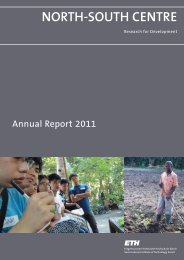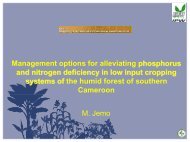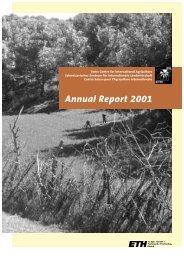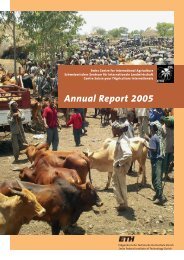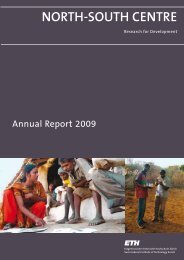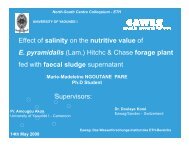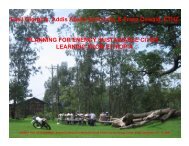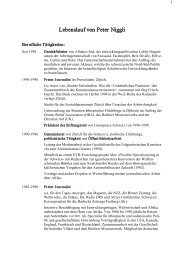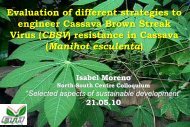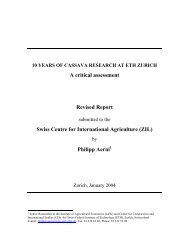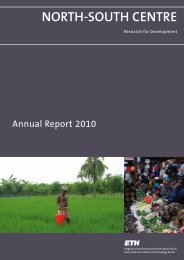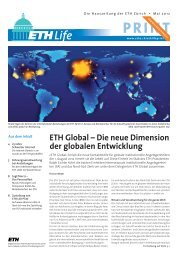Annual Report 2006/07 - ETH - North-South Centre North-South ...
Annual Report 2006/07 - ETH - North-South Centre North-South ...
Annual Report 2006/07 - ETH - North-South Centre North-South ...
You also want an ePaper? Increase the reach of your titles
YUMPU automatically turns print PDFs into web optimized ePapers that Google loves.
Research Fellow Partnership Programme (RFPP)Research fellowFrank Muttenzer, IUED GenevaSupervisorMarc Hufty,IUED, GenevaCollaboratorBruno Ramamonjisoa,University of Antananarivo,MadagascarDurationMarch 2003 – December <strong>2006</strong>Fiscal incentives for community forestry:Procedural legitimacy in co-management of forestsby multiple stakeholdersDiscourses on environmental governance must be seen in thehistorical context of borrowing foreign legal models. It appearsthat common property is not only a means to legitimise thegovernance model, but also to ensure some endogenous politicalcontrol over the ongoing transformation of ruraleconomies. This reflects a particular conception of justice butis not limited to exclusive ethnic identities. Taking into accountthe needs of migrants, it differs from the recent model of integratedconservation which reinforces predominant customs.Charcoal-making in Marovoay, Ankarafantsika National ParkSince the enactment of a local resource management law in1996, Malagasy land tenure policy has been re-discoveringcommon property regimes, a trend confirmed by the newtenure legislation enacted in 2005. This doctoral dissertationdeals with the particular implications of this paradigm changefor the organisation of the forest sector. It looks at deforestationas a tenure problem whose solution may require therecognition of local laws.Five ethnographies of contrasting settings and populationsshow how property relations are conceived, contested andsecured in the context of the Malagasy forest economy. Thecases analysed include the agricultural colonisation of rainforestsin the Sambirano region and the biological corridornear Ambalavao, the organisation of rural charcoal markets inthe lowlands of Mahajanga, as well as the extraction of raphiapalm fibres on the Eastern coast. They show that people’s participationin the protection of nature is difficult to reconcilewith existing representations of labour, ancestral domain, andpolitical ethnicity.Yet local resistance to new laws does not lead to a legitimacycrisis, as ancient customs are usually reinterpreted accordingto present needs and circumstances. I discuss theories ofinternational environmental policy-making and link these tothe wider question of international development aid. Themechanisms of transmitting environmental norms throughpilot projects, forest tax reform, and conditional legislation areanalysed as three separate aspects.46




